Author Todd Jay Leonard offers publishing tips at Japan Writers Conference
Posted by Tom Baker
JET alum Todd Jay Leonard will lead a poetry workshop at the Oct. 15-17 Japan Writers Conference, a free event that is happening online. The official description of his talk appears below.
Todd Jay Leonard
So you want to publish a book? 10 Basic Points to Keep in Mind!
Short Lecture with Q&A
Professor Leonard has published extensively over the past 30 years and is willing to share his experiences of both Japanese traditional publishing houses and POD formats to assist budding authors in their quests to get published.
This lecture will cover ten primary points that “potential” authors need to keep in mind when submitting a proposal to a publishing company or when self-publishing a book. He will outline the basic process from the book’s initial concept to getting the book into print to marketing it. His extensive experience in publishing as an author in Japan will serve to assist budding authors with the basics in the overall process that need to be considered when pursuing a publishing contract or when self-publishing. This is a short lecture with a Q & A format.
Todd Jay Leonard lives, writes, and teaches on the southern island of Kyushu, where he is a university professor at the University of Teacher Education Fukuoka. He has published extensively in academic journals, magazines, and newspapers on cross-cultural, historical, and Teaching English as a Foreign Language (TEFL) themes. He is the author of 25 books.
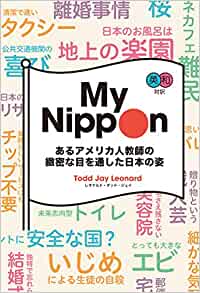
Joy Jarman-Walsh to teach interviewing at Japan Writers Workshop
Posted by Tom Baker
JET alum Joy Jarman-Walsh will give a presentation on how to conduct an interview at the Japan Writers Conference, a free event that is happening online this year. The official description of her talk appears below.
Joy Jarman-Walsh
Live + Engaging Networking via Interviews with Japan Insiders
Short Lecture with Q&A
Moving beyond words on a page by live broadcasting interviews to a worldwide audience in real time – it seems daunting but is transparent and engaging, reaching new audiences tired of traditional media. If you are researching an article, you are actually prepared to livestream- let me explain how to do it, and why it’ll make your content better.
I’ve been on a crazy and unexpected journey researching and hosting daily interviews with various experts and insiders in Japan, or abroad who are focused on Japan, to dive into what it means to seek sustainability. A big part of seeking sustainability is transparency, which I think is also critical for good writing, which can be achieved by engaging with your audience as you create the content. I believe that one of the best ways to do this is by livestreaming content to engage with a wider audience. As of the end of May, I’ve done over 250 live interviews and the comments and questions of live viewers has been an important aspect of the finished product. I think this concept can inform and improve almost any type of writing project. There are key strategies to prepping for interviews as well as running live talkshows which engage with a live audience. There is also post-production work that needs to be done, including getting the interview onto a podcast platform. I will lay out not only the why’s but also the how-to’s of the process.
Joy Jarman-Walsh (jjwalsh) runs a daily livestream talkshow called #SeekingSustainabilityLive which had it’s 250th episode in May 2021. Joy co-founded GetHiroshima in 1999, worked as an Assistant Professor teaching Tourism and Business for more than 21 years, then started her own sustainability-focused travel consulting business, InboundAmbassador, in 2019. Joy has written for academic journals as well as travel copy and destination articles. Joy has an MA in Sustainable Tourism from ASU (USA).
Tom Baker shares tips on writing a pub quiz at Japan Writers Conference
Posted by Tom Baker
JET alum and Jeopardy champion Tom Baker will lead offer tips on how to write trivia questions at the Oct. 15-17 Japan Writers Conference, a free event that is happening online. The official description of his talk appears below.
Tom Baker
Trivia Tips: How to Write a Pub Quiz
Short Lecture with Q&A
“I once attended a pub quiz in Bristol where a dispute over an answer resulted in a wild west-style brawl and the police had to be called,” a woman told the BBC in 2005. “Arrests were made, including the quizmaster.”
Quizzes should be fun. If you wish to host one that doesn’t end in tears – or behind bars – well-written questions are essential.
Drawing on my experience as both a contestant and a quizmaster, I will offer tips on how to write questions that are clear, entertaining, and minimally disputable.
Using examples from quizzes seen on TV and at pubs around Tokyo, I will discuss a variety of question formats, writing with brevity and clarity, ways of organizing categories, anticipating hecklers and nit-pickers, making obscure questions guessable, and the importance of flattering your audience by writing easy questions that sound hard.
Tom Baker appeared on four regular-season episodes of the U.S. quiz show “Jeopardy!” in 2004, before returning for the season-ending Tournament of Champions. He first guest-hosted a round of a Tokyo pub quiz in 2019, and has written and presented more than 20 rounds since then. Topics have included “The FBI 10 Most Wanted List,” “Pigs and Rats,” “Literary Works,” “Officeholders,” “Prime Numbers,” “Traveling Around Japan,” “Body Parts” and “Motorcycle Gangs and Clubs.”
For details, visit http://japanwritersconference.org/
Michael Frazier to lead poetry workshop at Japan Writers Conference
Posted by Tom Baker
JET poet Michael Frazier will lead a poetry workshop at the Oct. 15-17 Japan Writers Conference, a free event that is happening online. The official description of his talk appears below.
Michael Frazier
A Poem is a Thing that Moves: Contemporary Lyric Poems
Craft Workshop
Poetry
A lyric poem is a thing that moves, through time, one’s mind, and, in turn, moves the hearts of readers. We will read and analyze lyric poems that move towards unanswerable questions, via associative jumps, by Leila Chatti, Li-Young Lee, and Aracelis Girmay. We will write our own lyric poems!
Scan through most recently released poetry collections and you are bound to find poems marked not by chronological narratives, but by incongruent images, ideas, and questions seemingly held together by only a distinct first-person voice and the magic of poetry. In this workshop we want to dispel the illusion of the non-linear lyric poem. We will read a handful of lyric poems that rely on associative jumps by Leila Chatti, L-Young Lee, Terrance Hayes, and Aracelis Girmay. We will analyze how these writers navigate through a poem (motifs, music, etc.), and pursue a question to arrive at a new revelation (the turn). As a result, we will understand how their poems are maps for how their actual minds move and perceive the world. A poem is a thing that moves, through time, one’s mind, and, in turn, moves the hearts of readers. Under scaffolded prompting, we will write our own lyric poems that prioritize the patterns of our psyche.
Michael Frazier is a poet & HS Teacher living in Kanazawa, Japan. Pushcart Prize & Best New Poets nominated, his poems appear in Poetry Daily, The Offing, RHINO, Tinderbox, Tokyo Poetry Journal, and elsewhere. Currently, he’s facilitating a biweekly zoom poetry book club open to the public. Message @fraziermichael to join!
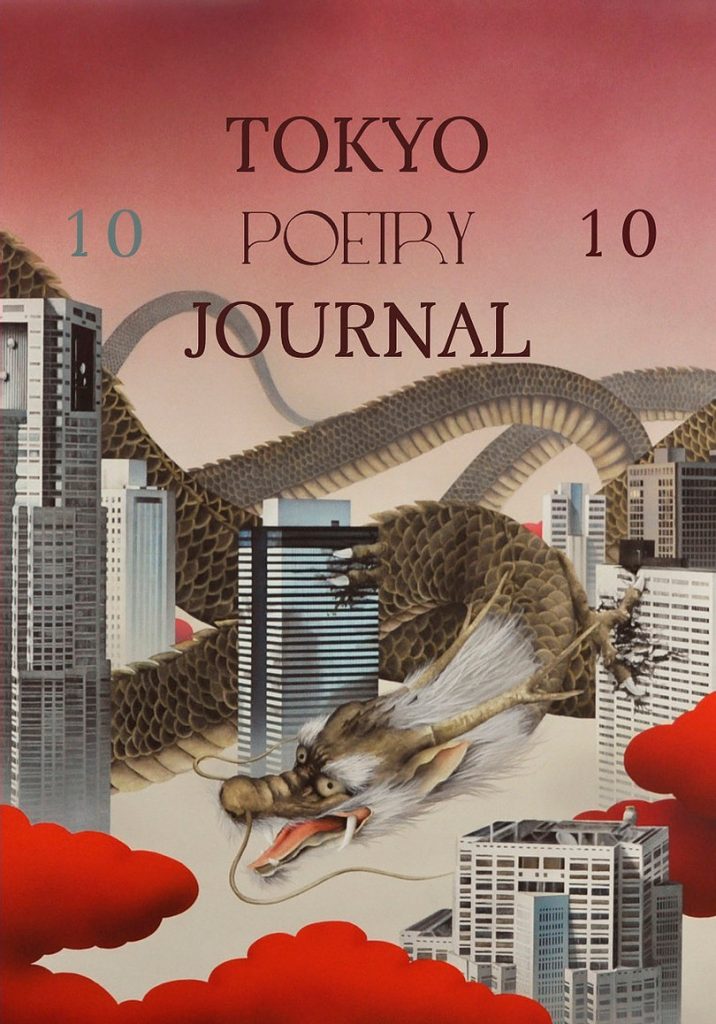
Author Suzanne Kamata to host panel discussion on identity at Japan Writers Conference
Posted by Tom Baker
JET alum Suzanne Kamata will lead a panel discussion on “Writing Identity” at the Oct. 15-17 Japan Writers Conference, a free event that is happening online. Suzanne is the author of multiple novels and nonfiction books, which you can read about at www.suzannekamata.com. The official descriptions of her talk appears below.
Suzanne Kamata
with Clara Kiyoko Kumagain, Kristin Osani, Clarissa Goenawan, Sara Fujimura
Writing Identity, From Inside and Outside
Panel Discussion
Fiction
Identity politics play a large part in determining which stories are published and how they are currently received in the English-speaking market. Generation Z readers — the audience for YA and New Adult titles — are especially aware of issues surrounding diversity, appropriation, and ownership. In this session, to be moderated by Suzanne Kamata, four authors of different backgrounds, writing about Japan from inside and out of their lanes, will discuss diversity, identity, inclusivity, and their own experiences and approaches to writing these in their own work.
In this era of #ownvoices and a heightened awareness of identity politics, what stories should be told, who should be allowed to write them, and how they should be presented are often contentious issues. In this moderated session, five authors of different backgrounds, writing inside and out of their lanes, will discuss diversity, identity, inclusivity, and their own experiences and approaches to writing these in their own work.
Award-winning author Suzanne Kamata was born and raised in the United States, but has lived in Japan for more than half of her life. She is the author or editor of 15 published books including, most recently, The Baseball Widow (Wyatt-Mackenzie Publishing, 2021) and Pop Flies, Robo-pets and Other Disasters (One Elm Books, 2020).
Clara Kiyoko Kumagai is from Canada, Japan and Ireland. She writes fiction and non-fiction for children and adults, and has had work published in Banshee, Room, Event, and Cicada. She currently lives in Tokyo.
Kristin Osani @KristinOsani is a freelance Japanese to English translator, writer, and editor
Her previous projects include Left Alive, Oninaki, Code Shifter, Dragalia Lost, and many more. Her short fiction is forthcoming in Flash Point SF.
Clarissa Goenawan is an Indonesian-born Singaporean writer. Her award-winning short fiction has appeared in literary magazines and anthologies in Singapore, Australia, Japan, Indonesia, the UK, and the US. Rainbirds, her first novel, has been published in eleven different languages.
Sara Fujimura @SaraFujimura is an award-winning young adult author and creative writing teacher. She is the American half of her Japanese-American family, and has written about Japanese culture and raising bicultural children for such magazines as Appleseeds, Learning Through History, East West, and Mothering, as well as travel-related articles for To Japan With Love. Her young adult novels include Tanabata Wish, Breathe, Every Reason We Shouldn’t (Tor Teen, 2020) and Faking Reality (Tor Teen, 2021). She lives in Phoenix with her husband and children.
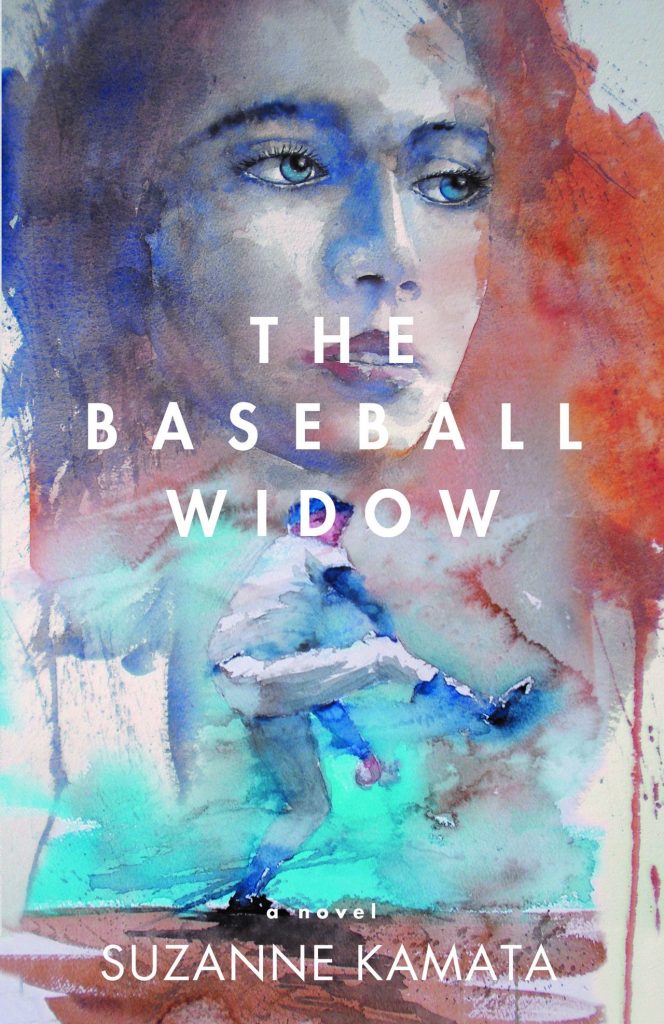
Posted by Tom Baker
Joe Palermo, who came to Japan on the pre-JET MEF program in the 1980s, has written a memoir about what life in Japan was like back then. Next month, he will give a presentation at the Japan Writers Conference (a free event that is happening online this year) on how he went about self-publishing it – a topic sure to be of interest to anyone who has written about their own Japan experiences. The official descriptions of his talk appears below.
Joe Palermo
No Pianos, Pets or Foreigners! Self Publishing a Memoir in eBook, Paperback and Audiobook Format at Minimal Cost
Short Lecture with Q&A
Nonfiction
A young Japanese woman was running through Tokyo station screaming “Save me! Save me!” There was a Japanese man chasing her and closing in. He grabbed her wrist and caught her about 10 feet in front of me. The woman was still yelling “Save me! Save Me!” but the Japanese people in the crowded station ignored her, not wanting to get involved.
This is the beginning of one of the stories from my experience living in Japan in the 1980’s, where I had moved right after graduating university. It was still rare to see an American who could speak Japanese fluently. This book guides the reader though my many adventures navigating through Japanese culture while living in the outskirts of Tokyo, as well as Tokyo proper.
I will detail my experience writing and publishing a book and audiobook about my life in Japan, using Amazon KDP and Amazon ACX. I will talk about what I learned through the process and what I would do differently.
Joe Palermo has retired after 30+ years as a corporate executive at the Nielsen Company and Information Resources, Inc. (IRI). He lived and worked in Japan for eight years and is the author of “No Pianos, Pets or Foreigners! My Life in Japan in the 80’s”.
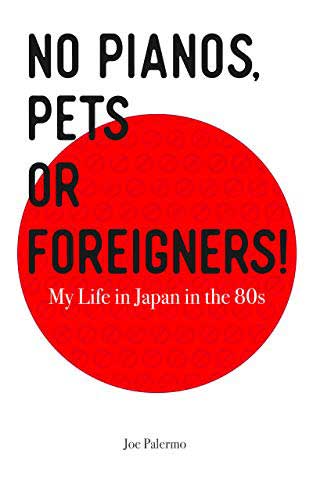
Posted by Tom Baker
In non-pandemic years, the Japan Writers Conference is held on an autumn weekend at a university somewhere in Japan. This year it is being held online (Oct. 15-17), which means you can participate no matter where in the world you are.
At least nine JETs (including classic-edition MEFs) will be among the published writers giving presentations on how to write well – and how to sell your work. These include memoirist Joe Palermo, poet Michael Frazier, poet and picture book author Holly Thompson, textbook author Todd Jay Leonard, and travel consultant Joy Jarman-Walsh. More JET alums are mentioned in the (slightly JET-edited) official press release below:
Published writers to share how they did it
TOKYO (Sept. 14, 2021) – The Japan Writers Conference has announced a lineup of more than 30 presentations by published writers in a variety of fields, from food writing to screenwriting and from to novels to haiku, for its 15th annual event on Oct. 15-17.
Due to the pandemic, this year’s conference will be held online, with Zoom details to be made available at http://japanwritersconference.org/email-updates/. As always, it will be a free, interactive event open to all who are interested in the art, craft and business of writing.
Poetry, memoir, fiction and publishing will be major themes. Tokyo Poetry Journal associate editor Zoria Petkoska will discuss how technology enables “cyber poetry,” while noted haikuist Michael Dylan Welch will look into the past to examine the use of place names. Karen Hill Anton and Lianne Wakabayashi will discuss crafting their Japan-related memoirs. Novelist and JET Joanne Anderton will explore mixing autobiography into speculative fiction, while novelists Charles Kowalski (another JET) and Michael Pronko will speak about creating characters. Multiple writers will share tips on both traditional publishing and self-publishing.
Astrophysicist and author Elizabeth Tasker will participate in a panel discussion on “Social Media for Writers,” while young adult novelist Sara Fujimura will join a panel on “Writing Identity.” Prominent multi-genre author – and JET – Suzanne Kamata will be part of both panels.
For more variety, journalist Melinda Joe will serve up the basics of food writing, photographer Edward Levinson will discuss finding inspiration in nature, filmmaker Yuri Kageyama will premiere a work on the Fukushima nuclear disaster, and “Jeopardy!” quiz show champion Tom Baker, still another JET, will describe how to write trivia questions. And that’s far from all.
Details on this year’s event can be found at http://www.japanwritersconference.org
Inquiries should be directed to japanwritersconference@gmail.com.
WIT Life #355: Tokyo 2020 Olympics
Interpreter/Translator/Writer Stacy Smith (Kumamoto-ken CIR, 2000-03) presents WIT Life, a periodic series about aspects of Japanese culture such as art, film, food and language. Stacy starts her day by watching Fujisankei’s newscast in Japanese, and here she offers some interesting tidbits and trends along with her own observations.
A quick mid-summer hello to all and hope those Olympic fans out there are enjoying the games. In lieu of a longer post, I’m going to leave you with some related articles from the Washington Post that I think are worth sharing.
First, an analysis of why holding the Olympics was so important to Japan this year, as well as its historic role in the country’s post-war development.
Congrats to Japanese-American Olympian Erica Sullivan for getting the silver in the women’s 1,500-meter freestyle! As this article details, she wowed the crowd with the native Japanese that she learned from her mother.
Finally, this article discusses the complicated feelings Fukushima residents have toward the Olympics. Many feel the exorbitant amount of money used would be better spent on the Tohoku region’s continued reconstruction, and that the “recovery” being touted by Olympic organizers is nothing more than a PR ploy.
Happy viewing!
JET alumna Sarah Coomber (Yamaguchi, 1994-1996) wrote The Same Moon about her adventures after moving to Japan! Sarah will read a short passage from her book and then we will take questions from the audience. You do not need to have read the book to enjoy this event. We hope you’ll join us. Two copies of Sarah’s book will be given away via random draw to those attending live.
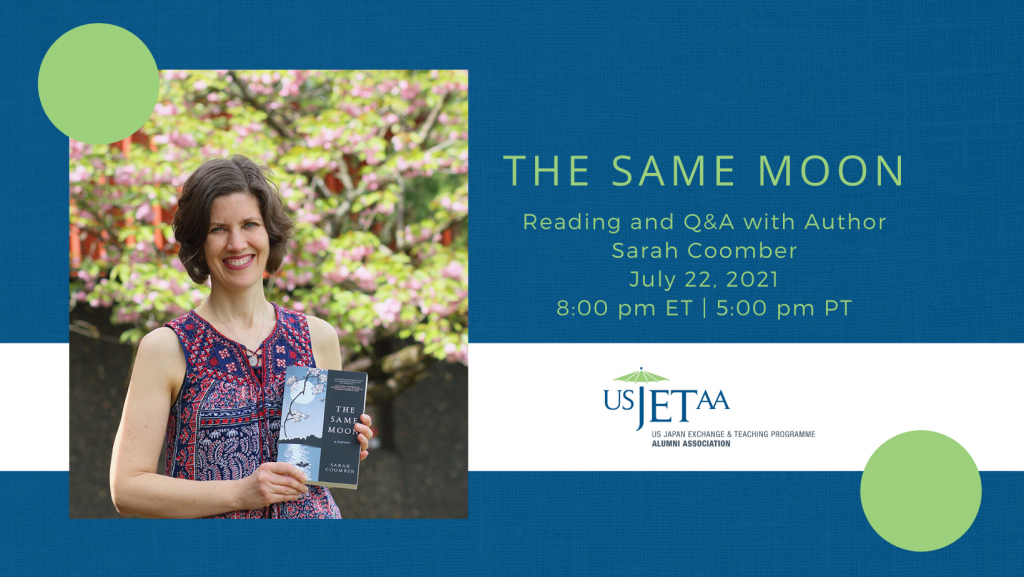
Date: July 22, 2021
Time: 8 PM ET / 5 PM PT
Join: REGISTER
About The Same Moon
Recently wed—and quickly divorced—twenty-four-year-old Sarah Coomber escapes the disappointments of her Minnesota life for a job teaching English in Japan. Her plan is to use the year to reflect, heal and figure out what to do with her wrecked life while enjoying the culture of the country where she had previously spent a life-changing summer that included a romance with a young baseball player.
About the Author
Ever since she turned seventeen, Sarah Coomber has held two homes in her heart: Minnesota, where she grew up, and Yamaguchi, where she spent a summer with the Maeda family, who welcomed her like a third daughter and introduced her to what became an on-again, off-again Japanese life.
That life has included teaching English in Yamaguchi on the Japan Exchange and Teaching Program (1994-96); teaching Japanese language and dance to children at an immersion camp in Minnesota; and studying the koto—Japanese zither—in Yamaguchi and Portland, Oregon, where she achieved her level four Seiha School certification.
Sarah has worked as a public relations professional, reporter, science writer and college English teacher, and her stories and essays on Japan have appeared in the Christian Science Monitor, the Japan Times, the Star Tribune, Cha: An Asian Literary Journal, Memoir Journal, the Font: A Literary Journal for Language Teachers and elsewhere.
She now works as a communications/writing consultant and coach, and teaches Holy Yoga, exploring the nexus of yoga and the Christian faith. She lives … and tries to remember to breathe deeply … with her family in Minnesota. More about here at https://sarahcoomber.com/.
JFNY Literary Series Episode #3
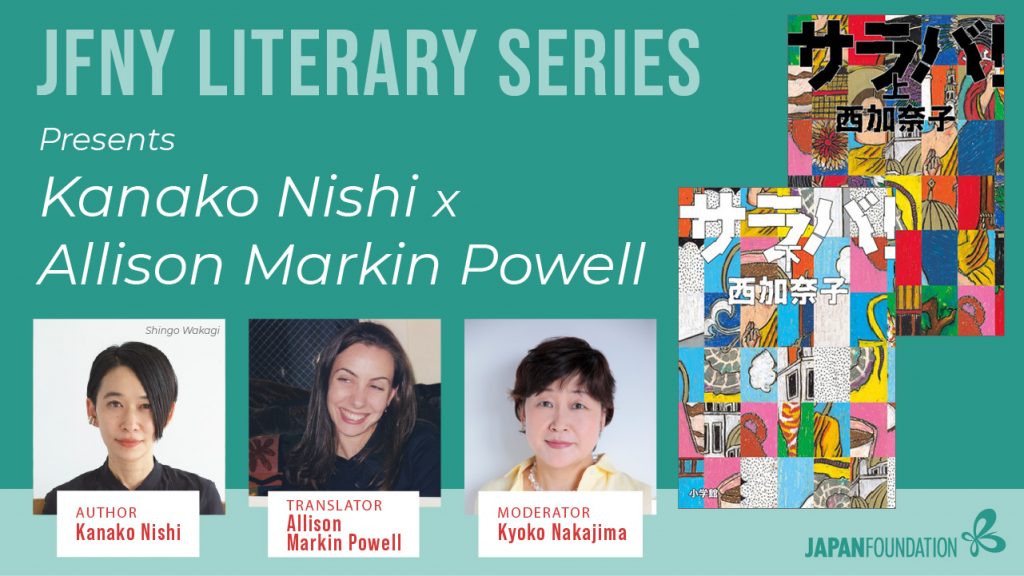
JFNY Literary Series invites notable writers in Japanese literature and their translators to discuss their work, speak on the art of translation, and touch upon the current literary scene in Japan.
This session features Kanako Nishi and her translator Allison Markin Powell, moderated by writer Kyoko Nakajima. Ginny Tapley Takemori from the collective Strong Women, Soft Power and interpreter Bethan Jones also joins the session. Nishi is an award-winning writer who has published more than two dozen books in Japan. Several of her writings are available in English online, all of which were translated by Powell:
In the Age of Endless Scrolling, Jun’ichiro Tanizaki Helps Us Stand Still
On Beauty, Sexual Violence, and Toni Morrison’s The Bluest Eye
The event is now available to watch on our YouTube channel! Watch the event here:
WIT Life #352: Japan in the News
Interpreter/Translator/Writer Stacy Smith (Kumamoto-ken CIR, 2000-03) presents WIT Life, a periodic series about aspects of Japanese culture such as art, film, food and language. Stacy starts her day by watching Fujisankei’s newscast in Japanese, and here she offers some interesting tidbits and trends along with her own observations.
What a difference a month makes! Here in NY the vaccine effort is in full swing for adults over 30, and many of us are keeping our fingers crossed in the hopes of snagging one. The rollout in Japan will take a bit longer, and currently Osaka and other areas seeing surges in cases. As a result, stronger restrictions (i.e. limited restaurant operating hours) have once again been implemented, much to the chagrin of proprietors. But the sakura are in full bloom in Tokyo, so hanami at least provides a nice distraction 🌸
Recently the NYT had two interesting Japan focused stories I’d like to share. One profiles the artist Kyohei Sakaguchi from Kumamoto (my JET home!). It does a deep dive into his architecture-related works, his living with bipolar, and his support of others with mental health struggles. His 2020 book Call Me When You’re in Pain details his experiences with suicidal thoughts, answering calls from strangers in crisis, and his strategies for coping. I find his activities remarkable considering the stigma of mental health issues in Japan, a stigma likely to be particularly strong in conservative Kumamoto.
The other article discusses why QAnon never gained traction in Japan, a hypothesis also evaluated in an AV Club article yesterday. One reason for Japan’s resistance is the idea that it is already well versed in conspiracy theories and therefore not as susceptible to new ones. Another factor is the conflict-averse nature of Japanese society, as well as the reluctance to talk about politics. However, one commenter in the latter article disagrees with this assessment, referencing the term “JAnon” which was used to refer to QAnon supporters in Japan. For more about this phenomenon, check out this Bloomberg podcast. Happy reading/listening!
WIT Life #351: Loneliness in the time of Corona
Interpreter/Translator/Writer Stacy Smith (Kumamoto-ken CIR, 2000-03) presents WIT Life, a periodic series about aspects of Japanese culture such as art, film, food and language. Stacy starts her day by watching Fujisankei’s newscast in Japanese, and here she offers some interesting tidbits and trends along with her own observations.
The ongoing coronavirus is taking its toll on each of us in different ways. The rise in 自殺 (jisatsu or suicide) and other 絶望死 (zetsuboushi or deaths of despair) that we are seeing here in the U.S. is also being seen in Japan. To combat its own 孤独という伝染病 (kodoku to iu densenbyou or loneliness epidemic), the Japanese government appointed its first Minister of Loneliness, Tetsushi Sakamoto. He was already in government as the minister in charge of raising Japan’s low birthrate and revitalizing regional economies.

Despite only recently taking on the additional role, Sakamoto has already introduced an emergency national forum to discuss the issue and share the testimony of lonely individuals. The hope is that via knowledge gained from this and other efforts, he will be able to implement policies designed to fight isolation and lower suicide rates. The government also set up a task force spanning various ministries that seeks to address the problem of loneliness, coordinated by Sakamoto.
Read MoreJQ Magazine: Book Review — ‘The View from Breast Pocket Mountain’
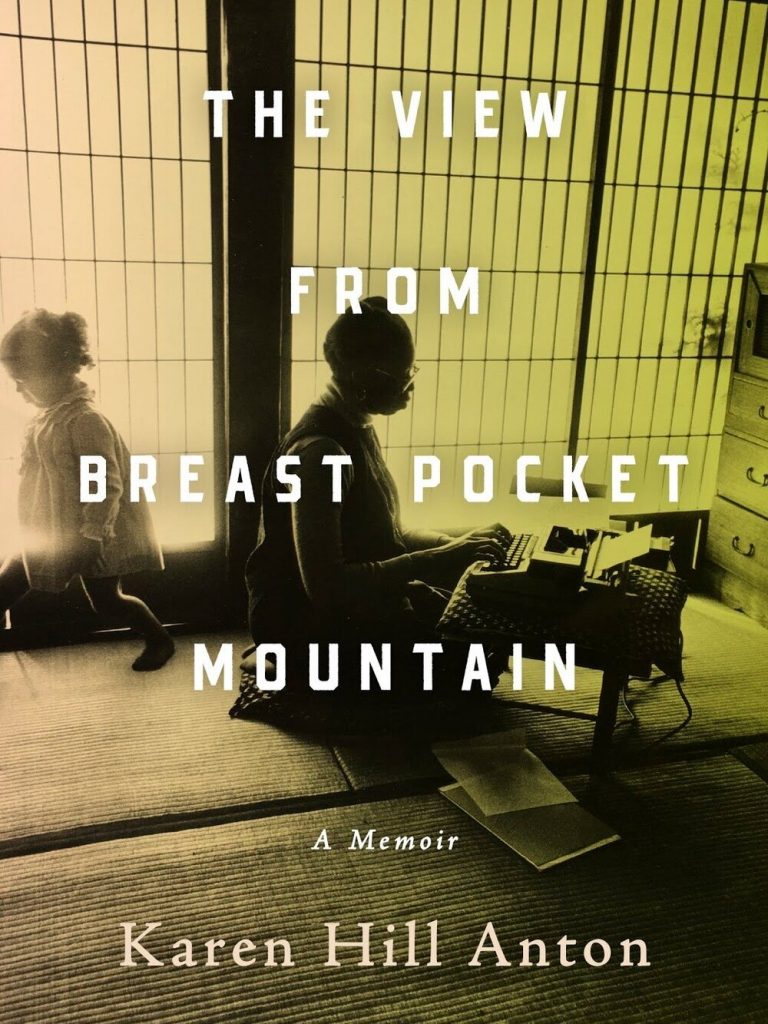
“Finding one’s home is often an experience. If told correctly, its story can be thrilling. The View from Breast Pocket Mountain will captivate those eager to learn more about gaikokujin who have made a home in Japan.” (Senyume Press)
By Rashaad Jorden (Yamagata-ken, 2008-10; Kochi-ken, 2018-2020) for JQ magazine. A former head of JETAA Philadelphia’s Sub-Chapter, Rashaad is a graduate of Leeds Beckett University with a master’s degree in responsible tourism management. For more on his life abroad and enthusiasm for taiko drumming, visit his blog at www.gettingpounded.wordpress.com.
There are gaikokujin whose journey to Japan is quite an adventure. One of them is Karen Hill Anton. She takes readers on a tour of her unconventional life in The View from Breast Pocket Mountain: A Memoir (the mountain is the translated name of the area home of her and her husband’s farmhouse). This is a life that sees her become a columnist for two Japanese newspapers as part of a 45-year (and counting) history with her adoptive country.
Anton’s story starts in New York City, where she grew up in a tenement apartment. The author spends most of the early chapters telling stories of life in the city. Her father often struggled to find work (but did so occasionally as a presser) while her mother was institutionalized. View really takes off when Anton details the period when she traveled outside the United States for the first time. Her adventures took her around Europe (often getting around the Old Continent by sticking her thumb out), where she hung out with a cast of colorful characters, including Swedish painter and textile artist Moki Karlsson, the mother of Swedish music star Neneh Cherry.
The European portion of the book includes more than anecdotes involving interesting figures she met. Anton adroitly captures the vibe of not just a bygone era, but apparently a different planet from the United States—writing that it’s “common sense” in Denmark (where she gave birth to her first child) to put babies outside. You get the sense that she’s completely in tune with her surroundings there as she includes other fascinating tidbits about the Scandinavian country. Through her writing, she comes across as someone who can feel at home almost anywhere.
Read MoreWarren Decker and Michael Frazier to lead poetry workshops at Japan Writers Conference
Posted by Tom Baker
Warren Decker and Michael Frazier are two JET poets living in Japan who will each be hosting a workshop at the Oct. 10-11 Japan Writers Conference. This year’s conference is being held online, so you don’t need to be in Japan to attend. For details, see http://japanwritersconference.org. Official descriptions of the workshops appear below.
Warren Decker
Pterodactylic Pentagrameter: Working with Rhyme and Meter
Craft Workshop
Poetry
In this workshop we will focus on poetry that incorporates rhyme and meter. As a participant, please bring 2-10 lines of rhymed and metered poetry for us to discuss. Please also be ready to share your unique techniques for finding the right meter and rhymes for your poetic lines.
Paradoxically, the confines of rhyme and meter can often serve to open unexpected creative doors. One who sets out to write about “fractals” may find “pterodactyls” swooping into their poem. Maintaining a regular pattern of stressed and unstressed beats might lead a poet—after many hours at the keyboard—feeling as though a supernatural rhythmic force is guiding them to choose the perfect words and in the perfect order.
In this workshop, while looking at specific examples of rhyme and meter as exhibited in the participants’ samples, we will collectively attempt to recall the wonderful technical terminology describing syllabic meter (for example: “iambic pentameter,” and “dactylic tetrameter”), but also consider looser and more intuitive accentual poetic rhythms.
Furthermore, we will discuss the incredible variation contained within the seemingly simple concept of “rhyme,” focusing on concrete examples to understand how and why certain rhymes work.
Warren Decker has published poetry, fiction and non-fiction in The Best American Poetry 2018, NOON, The Font, Frogpond, Modern Haiku, Acorn, The New Ohio Review, THINK, Sou’wester, Fifth Wednesday, and several other online and print journals. He also performs his poetry online and in front of live audiences in Osaka.
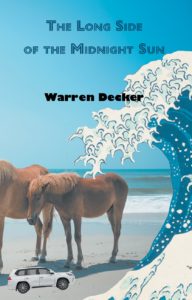
Michael Frazier
I AM MY FAMILY (a persona workshop)
Craft Workshop
Poetry
This is a poetry workshop (open to writers of all genres) who are interested in writing about and through their family. We will use the persona form—writing in the voice of family members—to interrogate ourselves. Some poets we’ll look at include Natalie Diaz, Paul Tran, and Julian Randall.
No one can move forward without looking back at where they’ve come from. This is the principle that guides this workshop. Persona poetry is poetry in the voice of someone, or thing, other than ourselves: shiba inu, wild iris, Sailor Moon, Kanye West, or even your bed. We will use the persona to focus on and interrogate our own families and make meaning out of the relationships that have formed us. In order to embody the voices of our family (biological or chosen) we must practice radical empathy. While a persona is in the voice of someone else, my hope is that in the poems we will write, we will turn inwards and learn something new about ourselves. We will look at writers who wield the persona and voices of their family with urgency like Paul Tran, Yalie Kamara, Hiwot Adilow, K-Ming Chang, Natalie Diaz, and Eduardo C. Corral.
Michael Frazier is a poet in Kanazawa. He graduated from NYU, where he was the 2017 poet commencement speaker & co-champion of CUPSI. He’s performed at venues including Nuyorican Poets Café & Lincoln Center. On staff at The Adroit Journal, his poems appear in COUNTERCLOCK, Construction, Visible Poetry Project, among others.
Charles Kowalski to dissect villains at Japan Writers Conference
Posted by Tom Baker
Many JETs are writers before coming to Japan, while others find that Japan give them something to write about. And many JET writers get involved in the Japan Writers Conference, which this year is being held online, Oct. 10-11.
One of this year’s featured writers is novelist and JET alum Charles Kowalski, who will describe how to give your story a compelling villain.
Here’s the official description of Charles’ presentation:
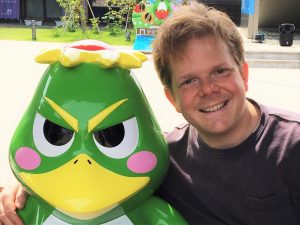
Masterminds, Minions, and Monsters: Creating 3D Villains
(Craft Workshop)
Create compelling villains that readers will love to hate! This workshop will introduce three main villain motivations (the “3 D’s”) and show how these form seven archetypes, plus six effective recruiting tools for henchmen (FLAMES), the top five justifications for villainy, and how to defeat the villain for a satisfying ending.
“A story is only as good as the villain.” – Clive Barker
Bad guys make good stories, and this workshop will focus on creating compelling villains that readers will love to hate.
Here are the questions to be asked and answered in this workshop.
What makes a compelling villain? How can the BOOM technique help create a villain with a believable backstory?
How do the three main motivations of villains intersect to form seven villain archetypes? What are the common personality characteristics of each?
What are the six tools used by master villains to recruit followers? What are the top five justifications for villainy?
What are the five main patterns of villain defeat and their common variations?
Come find out!
Charles Kowalski is the award-winning author of contemporary thrillers MIND VIRUS and THE DEVIL’S SON, and the Japan-themed historical fantasy SIMON GREY AND THE MARCH OF A HUNDRED GHOSTS. When not writing, he teaches at Tokai University.

